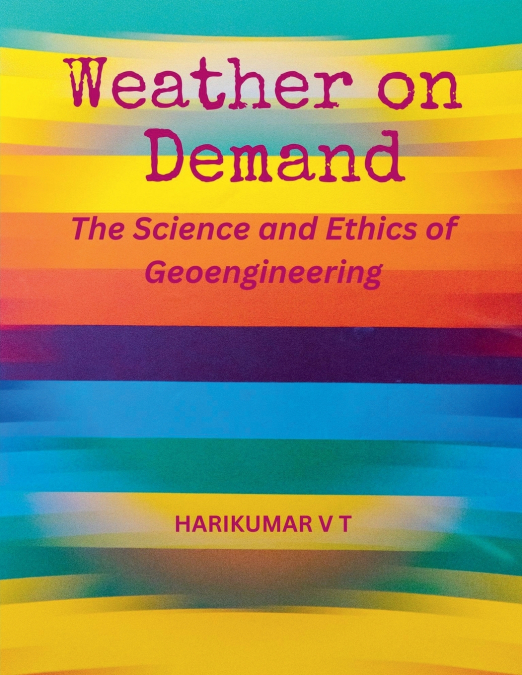
 Librería Perelló (Valencia)
Librería Perelló (Valencia)
 Librería Aciertas (Toledo)
Librería Aciertas (Toledo)
 Librería Elías (Asturias)
Librería Elías (Asturias)
 Donde los libros
Donde los libros
 El AlmaZen del Alquimista (Sevilla)
El AlmaZen del Alquimista (Sevilla)
 Librería Kolima (Madrid)
Librería Kolima (Madrid)
 Librería Proteo (Málaga)
Librería Proteo (Málaga)
In 'Weather on Demand: The Science and Ethics of Geoengineering,' readers are taken on an insightful journey into the burgeoning field of geoengineering. The book delves into the scientific principles behind manipulating Earth’s weather systems to combat climate change, exploring both the potential benefits and the significant risks involved. Written for a broad audience, it combines accessible explanations of complex scientific concepts with a deep dive into the ethical, political, and environmental ramifications of attempting to control the climate.The book begins with a historical overview of humanity’s efforts to influence the weather, setting the stage for contemporary geoengineering initiatives. It introduces the primary techniques being researched and tested, such as solar radiation management, carbon dioxide removal, and cloud seeding. Each method is scrutinized not only for its scientific feasibility but also for its potential unintended consequences.Interwoven with the scientific discourse are compelling case studies and real-world examples that illustrate both successes and failures in weather modification. The narrative also addresses the global governance challenges and the moral dilemmas posed by geoengineering, including the disparity in effects across different regions and populations, and the potential for geopolitical conflict.'Weather on Demand' encourages readers to consider the profound implications of geoengineering. It poses critical questions about humanity’s role in shaping the planet’s future and emphasizes the importance of ethical responsibility and international cooperation in the face of climate change.Whether you’re a scientist, policy maker, or an environmentally conscious reader, this book provides a comprehensive and thought-provoking examination of one of the most controversial and cutting-edge fields in environmental science today.